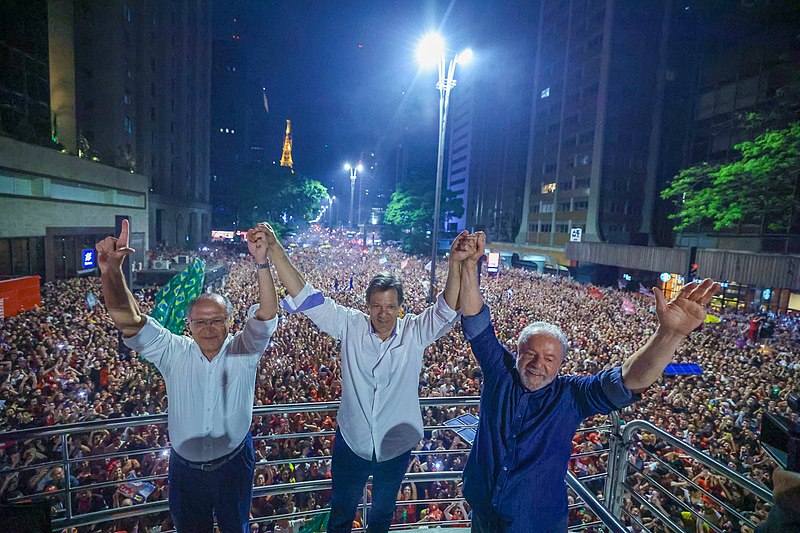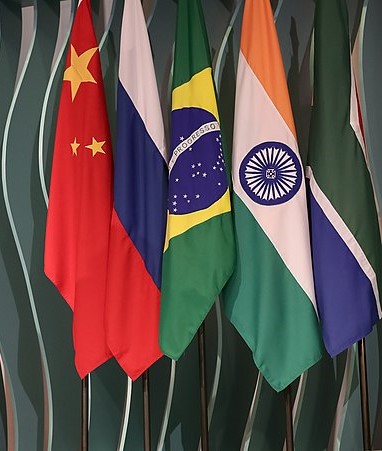A multipolar world
By Frieda Park
The war in Ukraine has brought into focus a number of questions which have been present for some time in the geo-political situation.
These include: The significance of the US unipolar world and the lengths it will go to maintain its hegemony. The nature of the forces opposing that hegemony and what does the demand for a multipolar world mean? What is the role of anti-imperialists in the current situation?
The US world order is the biggest threat to peace and the greatest constraint on progressive forces on a global scale as evidenced by the numerous illegal wars it has fought, and its’ military interventions and coups against leftist governments. However in the current situation, without a socialist world, opposition is largely from other capitalist powers. What are the implications of this?
ASSERTING INDEPENDENCE
Quite big capitalist nations are asserting an independence from the diktats of the US, including even formal allies like Saudi Arabia and Turkey. Nations which are targets for US domination like Iran and Russia are in opposition as well as other emerging powers like India and South Africa. Catalysed by being pushed to take sides over the war in Ukraine much of the global south, perhaps from experiencing the consequences of US hegemony, have refused to back the US agenda. This trend has not abated as the conflict has continued, but rather seems to be intensifying. It is a clear indicator of how seriously US power is in decline. This is good. Any challenge to US power undermines its ability to oppress other nations and prosecute wars. It will open potential space for progressive change which would otherwise be crushed.
We can see in South America how progressive movements have been able to take advantage of the US preoccupation with fighting to maintain its power on too many fronts. Leftist, social democratic governments have returned to power with great victories in Colombia, a long term ally/pawn of the US in the region, where the first ever leftist President was elected, and in Brazil with the defeat of Bolsonaro. This demonstrates the progressive potential of challenges, even from capitalist countries that undermine US hegemony.
Unlike previous realignments between imperialist powers there is no immediate contender to take over from the US as hegemon. That is why it is unhelpful to categorise the conflict between the US and Russia as an inter-imperialist war as it is not a war for global imperial advantage. Previous major imperialist powers seem to be out of contention to take over from the US. Germany has embraced its own destruction in the service of America over the Ukraine war. France, though less happy, has so far colluded, meaning the EU has adopted the same stance - although that has already resulted in divisions within and between member states and may result in future reversals for the current German government policy. As evidenced by its current political turmoil Britain also is in imperial decline as is Japan.
MULTIPOLAR WORLD
Those countries increasingly alienated by the US have begun to advocate for a “multipolar” world, rather than the unipolar one. It has taken the US proxy war against Russia to bring the possibility of a multipolar world to the fore, but what will it take to achieve it? Of course it would mean a decisive diminution of US power. That still seems some way off given its global predominance in terms of its economy, financial control and vast military might, way outstripping any competitors. There is no faction within the US establishment which is for accepting a decline in US power, nor giving up its status as the world’s sole superpower. Rising powers, particularly China, are being met with bullying, sanctions, provocations and threats of war. Yet will that position be sustainable as more and more countries see fewer benefits to toeing the US line and fall out of the US orbit? Bullying is having less effect and the US seems uninterested in wooing other countries – perhaps it is below its imperial dignity. China on the other hand does very well at wooing other countries and winning their support.
In this fragmenting world what the US has achieved is keeping the other old, declining imperial powers on its side – Britain, Germany, France and Japan. (Arguably Germany might have had another go at asserting itself, and has been working to construct the EU as its imperial base, but seems to have abandoned that possibility in giving all out support to the US.) That constellation of established imperialist countries is an incredibly powerful bloc although it is not without its tensions and unhappiness with US policy. For as long as it holds though, this is another major strength for the US.
On this basis the road to a multi-polar world seems set to be one of continued conflict and war as the US tries to defend its position.
Whilst breaking the power of the US which has dominated the globe since the end of World War 2 would remove the biggest threat to peace and progress, what would a multi-polar world have to offer?
BRICS
The example of BRICS is interesting. It is emerging as a focus for counter-balancing US power. It was always its intent to bring together some larger economies independent of current imperialist blocs. Originally Brazil, Russia, India, and China met together in 2006 and the group was joined by South Africa in 2010. Since the war in Ukraine started Argentina, Iran, Saudi Arabia, Turkey and Egypt have all signaled an interest in joining.
BRICS aims to foster economic collaboration and has established the New Development Bank, financed by member states to support each other and other nations. It allows BRICS member states: "to promote their interests abroad... and can highlight the strengthening positions of countries whose opinion is frequently ignored by their developed American and European colleagues."
It has discussed an alternative international payment system to SWIFT, which hasn’t been concluded, but two BRICS members, Russia and China already have such systems.
The political dimension of BRICS has been in sharp focus since the war in Ukraine started, with only Brazil, under Bolsonaro, voting to condemn Russia at the United Nations. Yet he also made statements declaring Brazil’s neutrality in the conflict – it is heavily dependent on Russian fertiliser for its big soya bean industry. He opposed sanctions on Russia and suggested that Zelensky should accept defeat and surrender.
The new President, Lula da Silva, has said that Zelensky was equally to blame for the war as Putin and that he would promote peace talks.
Especially if it were to expand, BRICS could be an alternative alliance of big capitalist economies creating a separate power base to the unipolarity of the US. The disparate nature of the countries involved would bring its own difficulties, however, and may limit what could be achieved.
In addition to BRICS a plethora of bilateral and multilateral agreements are being made by countries who wish to collaborate and decrease their dependence on the United States
If the US is pushed back other capitalist powers will compete to exploit its weakness and occupy the space created. That is to say we will return to a contest of rising and declining imperial powers with the likelihood that one or more will be newly emerged and not one of the historic powers identified by Lenin back in 1917 when he was writing about the imperialist world system. (1) But the disruption to the world order also has potential to create space for progressive governments in neo-colonial or semi-colonial countries. The other hope is that from the war, chaos, and poverty being inflicted on the peoples of the world there will be a stronger revival than at present of anti-colonial and socialist movements.
ANTI-IMPERIALISM
At the present time what can we do as anti-imperialists to help break US power and achieve a multipolar world?
1) Unequivocally oppose US imperialism and support any country challenging US aggression. There is no, as yet, competing imperialism which would justify an abstentionist position in any conflict. This stands regardless of the internal politics of the countries involved, which may be reactionary - but that is a separate question from their geopolitical position.
2) Support the independence and sovereignty of other nations and their right to determine their own solutions to their political problems. This means opposing regime change to install more pro-US governments. Iran is an obvious current target for that. We know the pattern - that people suffer injustices, sometimes severe repression, but their justifiable grievances are subverted by the west to effect “colour revolutions” which leave people often no better off, while opposition to Western agendas has been removed. Constant intervention allegedly to support human rights or avert aggression through instruments like the National Endowment for Democracy, military interventions etc are rife and we should always be aware of that especially when we see our media promoting opposition in countries such as Iran. If they really were concerned about human rights where is the coverage of Palestine?
3) Oppose sanctions as a method of imperialist coercion.
4) Oppose the escalation of military spending among NATO countries and the drive to war, particularly with China.
5) Welcome and support alliances and agreements at the inter-state level, between countries of the global south. We should also emphasise positive internationalism – supporting workers and progressive movements throughout the world which challenge the imperial order. If the multipolar world is to be anything other than a capitalist world order then progressive forces, including our own movement, must be stronger than they are now.
(1) Imperialism, the Highest Stage of Capitalism, V I Lenin 1917

Lula (on right of photo) victorious in Brazilian election Photo by Colectivo Resistencia

The flags of the BRICS countries left to right China, Russia, Brazil, India, South Africa Photo by Palacio do Planalto






